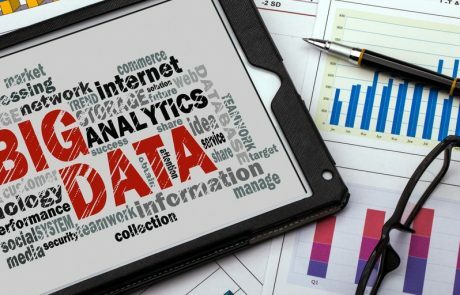Pros and Cons of Big Data
There is no denying that since The Digital Revolution, our world has become majorly data-driven. At the current pace, people are producing around 2.5 quintillion bytes of data each day. And the numbers aren’t about to stop growing.
Considering that, data has become quite a valuable asset in any marketing strategy. Nowadays, businesses are constantly collecting and analysing most of the information their customers produce. While this may sound concerning, all the possible applications of big data lead to better product quality, customer experience, and technological advances.
Table of Contents
But what is Big Data?
Big Data is a field that deals with information that is too complex or numerous to be dealt by means of traditional analysis. It can be applied to any business domain and to be used to make data-driven decisions.
The definition of Big Data can be condensed into the so-called three V’s:
Volume
Whenever there are increased sizes of data sets to work with (we are talking Tera-, Peta-, etc -byte scale), traditional relational databases will fail. Big companies like Google, Yahoo, Facebook, etc. encountered this problem in their early stages. Fortunately, their need gave birth to particular programming models and toolsets designed specifically for solving such problems.
Velocity
With the increase of volume, the need for swift processing time increases as well. Not to mention that the modern world requires quicker and quicker insights from data. A certain hardware engineering new-found enabled to move on-disk data-processing to in-memory data processing, transitioning certain workloads from CPU to GPU.
Variety
Large organizations can produce and accumulate a lot of unstructured data and metadata of many different types. If not managed correctly, a lake of data can quickly become a data swamp. Structuring, managing and processing vast amounts of data is challenging and unproductive without proper tools.
Big Data solutions are a pain-reliever for the problems listed above. It is clear that any middle- to large-scale business can greatly benefit from utilizing them.
How is Big Data Collected?

But where do businesses get all that data from? There are many ways corporations get hold of your personal information. Here are some examples of how your data gets collected:
Your email inbox. Your inbox may not be as private as you may have thought. Corporations are constantly scanning your mail in order to send you personally targeted offers.
Social media activity. Nowadays, almost everybody is enjoying feeling connected with the world through social media. It has become an essential part of everyday life for many. It is a means of communication and entertainment. People tend to become frivolous with how much data they produce. And a lot of those people don’t even realise how much personal information they are willingly sharing. All this means that there is no better way to harvest heaps of personal data than social media.
Transactional data. Each time a transaction is completed, your whereabouts, time of purchase, it’s cost, and much more variables are shared with the business you have bought the item from.
Satellite imagery. The small satellite business is on the rise, allowing companies to take a look at their customers from a new point of view, literally. Capturing and combining satellite imagery gives valuable insights into the economic state of an area, its residents and their tendencies. A number of companies share their satellite data, making it open-source. This allows smaller companies to peruse the data without having to possess or rent their own satellites.
Read more: How Financial Risk Management Software Can Benefit from Big Data Analytics
In this article, we are going to focus on Big Data in business, its pros and cons, and future potential.
Big Data Advantages
To begin with, we have outlined five main Big Data advantages that may be worth your attention:
Security
Real-time data analysis allows you to almost instantly spot anomalies in expected patterns. This enables you to identify and, essentially, fix any problem that may have occurred, leading to better customer experience. In addition, such analysis helps spot fraudulent behavior and security breaches. This lets you take necessary measures in a timely manner, which helps prevent major security breaches that may have occurred otherwise.
Sales
Data collection and analysis plays a major role in understanding customer behavior. Recognising patterns and trends in your customer’s actions leads to developing a better marketing strategy. With that said, it is obvious that knowing what your users like and expect brings your sales to a whole new level. In addition, thorough data research allows you to see new marketing opportunities and helps with new product development.
Productivity
Knowing your business in-and-out is undoubtedly a valuable asset. Big data analysis helps bring out essential details in the workflow, which, respectively, presents endless possibilities for improvement and optimization. With the help of data analysis, you can greatly improve the productivity of your employees, bringing management to a whole new level.
Cost Reduction
Another advantage is cost reduction. Correct data analysis helps you spot any unnecessary expenses and generally gives you better control over your finances.
Competitors
Another major advantage of having lots of data at your disposal is seeing the tendencies among your competitors. Knowing all the latest trends in your market is essential to stay on top of your business.
Read more about Big Data Analytics in Business
Customer Service
The most valuable asset of every business is its customers. And that’s no wonder because without customers there won’t be any business itself. Real-time data analysis opens up new possibilities for improving customer service. Having data and statistics at your disposal enables you to create special offers and develop an individual approach to each customer. This strategy helps build better relationships with your customers, making it just a bit more personal.
Although Big Data is vastly advantageous, there are quite a few concerns associated with it. Here are some disadvantages of Big Data in business that we outlined:
Integrating Big Data analysis into a business is a costly endeavor. It requires time and major strategic changes.
Real-time data collection means a constant flow of data, which requires storage space and service. There are many solutions to that problem, but each requires additional expenses.
Software and Hardware updates are essential for a business to even become able to handle all this data it is going to harvest. Which is, it goes without saying, another major expense.
Data is no use in its raw, unstructured form. Such aspects of it as visualizing, ability to perform searches, keeping the information private, etc. are essential to understanding and using data. The employment of specialists is undoubtedly required to manage and make sense of your data. It just isn’t possible to become data-driven without expanding your current team.
In addition to the disadvantages listed above, data collection poses legal issues to your business. You must conform to your state’s law to be able to collect personal data. Besides legality, collecting personal information is a moral issue itself and may be a concern to unprepared customers.
Even though big data in business promote cost reduction, for some, it may not be cost-effective. It brings legal concerns and major business restructuration. That is why it is highly important to think through the decision to make your business data-driven.
To sum up
Integrating big data technology into an existing business is no easy task. However, if done right, introducing big data solutions may benefit your business greatly, improving each and every aspect of it. Even though it has it’s deal of disadvantages, the advantages greatly outweigh them. Correct handling and analysis of data result in revenue increase, improved decision making, and innovative solutions.
We, Romexsoft, believe that the future is in big data and its many possibilities to change the world for the better.
Wondering how all of this can be applied to your business? Let’s talk!
